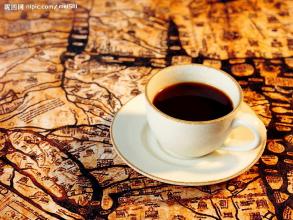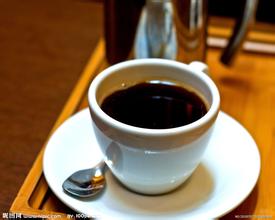Jane Goodall Fair Trade blend Coffee Italian blend Coffee beans
Billions of small-scale farmers in developing countries live on less than $2 a day. They struggle to feed their families, send their children to school and retain their land. Fairtrade supports and resources to lift farmers out of poverty and invest in their communities.
The fine coffee industry has made great efforts to test and study the varieties and harvesting methods of coffee. Tim, for example, spent a lot of time working with farmers to experiment with different coffee harvesting methods. In addition, boutique coffee shops respect coffee farmers and actively raise the purchase price of good coffee, hoping that farmers can have the initiative to produce better coffee beans, achieve sustainable development and win-win, more and more good coffee, and the taste of fine coffee is getting better and better. And single-estate, single-tree coffee also has a rich balance of aroma and taste. It is obviously a pity to continue to blend these characteristic coffee beans.
To make coffee blends, even seasonal blends (usually about 3 months, coffee shops will change the blend once) are difficult to avoid to the late blend of aroma and taste is not as good as when the blend was first launched. This is because the overall quality of coffee beans will decline with preservation, but different coffee beans, this quality decline rate is not the same. For example, a blend of coffee used in 3 estates is likely to have a lot of bean quality decline from the second month, but the other two beans are likely to maintain high levels for 4 or 5 months without significant taste change, but due to poor quality changes in one of the coffee beans, this blend cannot continue to be used. The use of single beans can avoid this problem very well. If this bean is not easy to preserve and the quality declines rapidly, the coffee shop can purchase less, enough for 1~2 months to adjust the taste. And those beans that are easy to preserve can enter more and get a price advantage, which is beneficial to coffee shops and consumers.
In fact, if I know that a coffee shop can provide several single concentrated products at the same time, if I am a guest, I can change the style of drinking, and I will be very happy to do comparison. Maybe I want to try different varieties more frequently. The frequency of visiting coffee shops is higher. Drink a few more cups. Coffee shops are also very happy.
An eight-story garment factory in Bangladesh killed more than 1100 workers in 2013. Fairtrade certified factories must comply with internationally recognized labor standards and safety regulations and provide safe working conditions for workers.
Farmers are often forced to engage in agricultural activities that compromise local ecosystems. Fairtrade farmers, by contrast, adhere to strict environmental standards, and higher prices enable them to invest in sustainable development and protect their land for future generations.
An estimated 200 million hours a day are spent collecting water worldwide. As a responsibility, many Fairtrade certified farms and factories use their community development premiums to build wells and ditches that bring clean water to villages in the first place.
Each year, about 128000 Americans are hospitalized for foodborne illnesses. Fairtrade-certified farms ban the use of the most toxic pesticides and routinely use premiums to improve wastewater treatment and train workers to produce safe foods, ultimately improving the quality of their products.
Globally, nearly 100 million children aged 5 to 17 work in agriculture. Fairtrade prohibits child labor, and farms often invest in Fairtrade premiums to ensure that children are not working in agriculture but in school.
While women do a lot of work, on small farms, large estates and factories, they often face discrimination and harassment. Fairtrade combats these problems and empowers women through education, leadership roles and equal representation on workers 'committees.
There are 123 million illiterate youth worldwide, 11 per cent of the total youth population. Many Fairtrade certified farms and factories use their community development premiums to build schools, purchase school supplies and fund scholarship programs that benefit young students.

Important Notice :
前街咖啡 FrontStreet Coffee has moved to new addredd:
FrontStreet Coffee Address: 315,Donghua East Road,GuangZhou
Tel:020 38364473
- Prev

The types of coffee beans, taste and flavor production areas introduce how many kinds of coffee beans there are.
Colombia-Columbia (highest quality): the second largest producer in the world. Coffee beans are light green, large granules, with heavy flavor, whether single drink or mixed are very suitable. Characteristics: incense-strong, sweet-medium, acid-medium, alcohol-strong, bitter-weak. Carbon roasted coffee, also known as bitter coffee, means that the fire source of roasted coffee is carbon fire, and sometimes special wood is used.
- Next

The function of the construction mold of coffee beans what is the function of coffee beans
However, the most important thing to pay attention to when grinding coffee beans is the following two points: ① friction heat suppression to a minimum. (the aroma will be dispersed due to fever) whether the size of ② particles is uniform or not. (if the particles are uneven, the concentration will be uneven.) taking this as a consideration, if you are a household mill, you should rotate gently and be careful not to produce friction heat as much as possible. So use the electric type.
Related
- Guji coffee producing area of Guji, Ethiopia: Humbela, Shakiso, Wulaga
- What is the most expensive variety of Qiloso in BOP multi-variety group?
- How to store the coffee beans bought home?
- Why are Yemeni coffee beans so rare now?
- Ethiopian Sidamo all Red Fruit Sun Sun Santa Vini Coffee beans
- SOE is mostly sour? What does it mean? Is it a single bean? what's the difference between it and Italian blending?
- Is Italian coffee beans suitable for making hand-brewed coffee?
- How to choose coffee beans when making cold coffee? What kind of coffee beans are suitable for making cold coffee?
- Just entered the pit to make coffee, what kind of coffee beans should be chosen?
- Can only Japan buy real Blue Mountain Coffee? What are authentic Jamaican Blue Mountain coffee beans?

